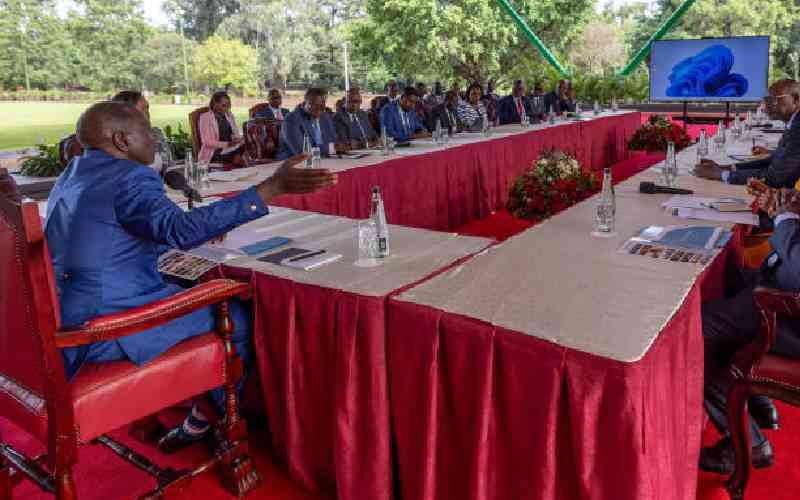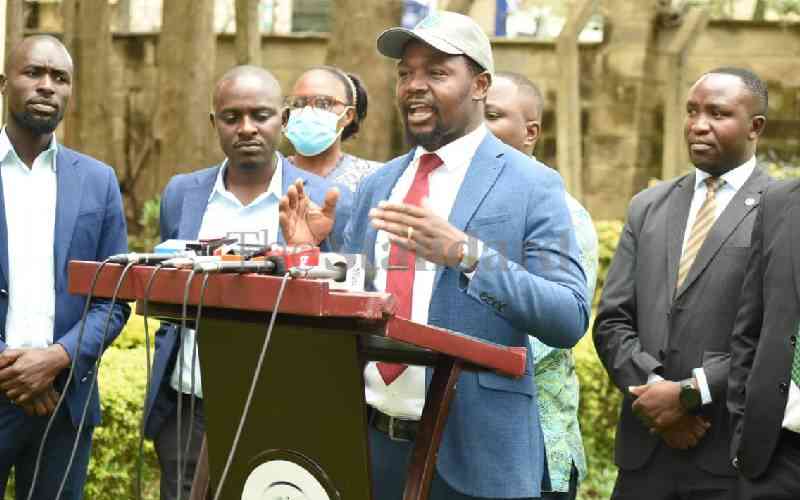The government continued with its borrowing spree three months into the current financial year, accumulating Sh150.8 billion in new loans.
This was an increase of 56 per cent compared to Sh97 billion that the National Treasury borrowed in the same period last year.
Between July and September 2019, The Treasury borrowed Sh144 billion from local investors, Sh3.2 billion from international organisations and Sh2.5 billion for programme support.
Acting National Treasury Cabinet Secretary Ukur Yatani has in recent times instituted measures aimed at slashing non-essential spending in what is aimed at bringing down the country’s debt levels.
Mr Yatani also noted that The Treasury would soon unveil a new debt policy with the objective of retiring expensive loans.
However, the exchequer’s debt bills during this period increased faster than the country’s tax earnings. The tax collected increased by 13 per cent.
Much of the borrowed cash was used to repay loans, in what is technically known as refinancing.
Slightly over a third of the country’s revenues went to the payment of debt, compared to 28 per cent in the same period last year.
The government says it is trying to restructure its debt by lengthening the average maturity time of its loans.
However, the government has had problems restructuring its loans with investors still preferring short-term government papers.
Disbursement for development and to counties during this period more than doubled.
Counties received more cash in the first three months compared to the same period last year, despite the delay in the passage of Division of Revenue Bill.
The counties, which went for two months without getting their cash as Senate and National Assembly fought over the Division of Revenue Bill, received Sh55 billion. Nairobi, which received Sh2.7 billion, had the most cash followed by Turkana, Sh1.8 billion.
The National Treasury borrowed Sh770 billion in the 2018/19 financial year that ended in June against an initial target of Sh635.5 billion, or 6.3 per cent of the GDP, as increased wages and interest on loans forced the country back into the debt market.
However, the country's fiscal deficit - the difference between revenues and expenditure - increased to 7.4 per cent of GDP, a situation that saw the country’s stock of public and publicly guaranteed debt surge to Sh5.81 trillion.
Stay informed. Subscribe to our newsletter
This was a growth of 15.2 per cent from Sh5.039 trillion in June last year, according to the Central Bank of Kenya’s weekly bulletin.
"The government will continue with fiscal consolidation efforts. Deliberate steps will be undertaken to narrow the budget deficit and stabilise public debt, prioritise development expenditures while protecting social spending and investments," said Treasury in its 2019 Budget Policy Statement.
[email protected]
 The Standard Group Plc is a
multi-media organization with investments in media platforms spanning newspaper
print operations, television, radio broadcasting, digital and online services. The
Standard Group is recognized as a leading multi-media house in Kenya with a key
influence in matters of national and international interest.
The Standard Group Plc is a
multi-media organization with investments in media platforms spanning newspaper
print operations, television, radio broadcasting, digital and online services. The
Standard Group is recognized as a leading multi-media house in Kenya with a key
influence in matters of national and international interest.
 The Standard Group Plc is a
multi-media organization with investments in media platforms spanning newspaper
print operations, television, radio broadcasting, digital and online services. The
Standard Group is recognized as a leading multi-media house in Kenya with a key
influence in matters of national and international interest.
The Standard Group Plc is a
multi-media organization with investments in media platforms spanning newspaper
print operations, television, radio broadcasting, digital and online services. The
Standard Group is recognized as a leading multi-media house in Kenya with a key
influence in matters of national and international interest.








